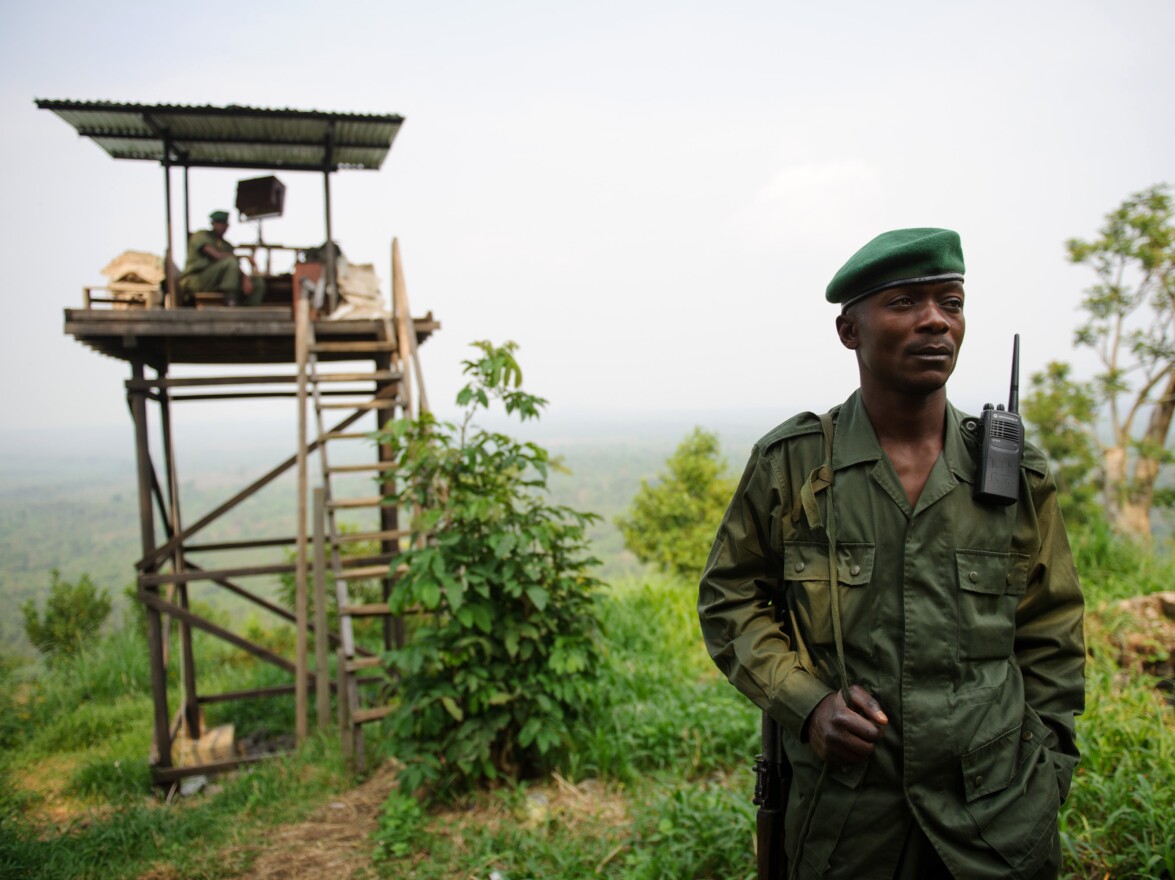When crossing from Uganda into Congo at the shabby border town of Bunagana, I encountered a broadly smiling man in a black leather jacket named Hamid Kashaisha.
He asked if I wanted to see the gorillas. I replied that it's guerrillas — with guns, that is — that I wanted to see: the M23 rebels who, for the past two months, had occupied a piece of real estate in eastern Congo larger than Delaware.
That was no deterrence to the pitchman.
"Right now we are charging $350, visa inclusive, and transportation both ways, $150," he said. "Now we are operating for Virunga National Park, and the gorillas are now active and they are happy when they are visited by people from all around the world."

Kashaisha splits the fee with the gun-slinging insurgents. Gorilla trekking is the latest sideline for M23, in addition to their rackets taxing truckers and charcoal makers.
Guerrilla War In Gorilla Habitat
Virunga National Park in the Democratic Republic of Congo is home to 200 endangered mountain gorillas, about a quarter of the world's total — and, at last count, to nine different armed groups in and around the protected area.
In the past few months, a new insurgent group has taken over gorilla habitat in Virunga, Africa's oldest park and a UNESCO World Heritage Site.
We had heard some adventure tourists are actually paying the $500 to go see the apes in the densely forested slopes controlled by the Congolese mutineers. After all, neighboring Rwanda charges $750 to see its mountain gorillas.
Reached by phone, the business development director at Virunga National Park, Cai Willink, said the guerrilla gorilla guide we encountered is a fraud. He is untrained, the safety of his clients cannot be guaranteed, and the park receives none of the money he collects.
In fact, Virunga has been closed for the past four months because of combat between M23 and Congolese troops in and around the park.
Growing Population
Virunga National Park has six gorilla families that are habituated to humans. In late July, government and rebel forces agreed to a ceasefire to allow rangers and trackers from the Bukima patrol post to go in search of gorillas they had not seen for more than three months.
Four families were found and reported to be healthy.
One ranger described the encounter this way: "The gorillas circled us, and several reached out to touch and smell us. They had not seen us for a very long time and they seemed calm and curious."
Rangers have yet to receive permission from M23 to search the area where the remaining two families hang out, to count them and remove snares.
This is not the first time armed conflict has spilled over into Virunga National Park. In 2007 and 2008, rebels took over the park headquarters; artillery and machine-gun fire killed nine mountain gorillas. The park reports more than 130 of its rangers have been killed in the past 15 years.
Despite it all, a census taken in 2010 reveals the number of mountain gorillas living in the adjoining volcano parks of Congo, Uganda and Rwanda has increased 26 percent since 2003.
Under the circumstances, this gorilla army is doing remarkably well.
Copyright 2021 NPR. To see more, visit https://www.npr.org. 9(MDAxNzg0MDExMDEyMTYyMjc1MDE3NGVmMw004))








